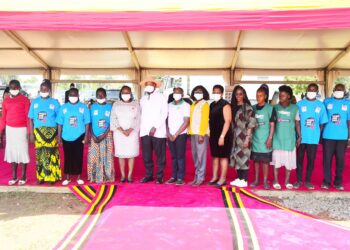The tragic events unfolding in Uganda today are an ugly reminder of the deep-seated poverty, desperation, and daily struggles that many citizens face. While a fortunate few benefit from the country’s resources, the majority of Ugandans are locked in a relentless battle for survival, with little hope for change. The recent inferno in Kigogwa, which claimed 15 lives and left over 24 others injured, is a heartbreaking testament to this harsh reality, especially for the young men who were simply trying to provide for their young families.
This tragedy is not an isolated incident; it is a symptom of a larger, systemic issue that Uganda must confront. The victims, predominantly young men, were fathers and husbands working in unsafe conditions to make ends meet in an economy where opportunity is scarce. Their struggle reflects the growing economic disparity in Uganda, where income inequality leaves many fending for themselves under increasingly dire circumstances.
The Kigogwa inferno further exposes the dangerous combination of desperation and a lack of employment opportunities. Uganda’s youth, burdened with the responsibility of supporting their families, are forced to take on unsafe gambles in hazardous environments, often with no alternative but to risk their lives. As a nation, we must ask ourselves: Why should any Ugandan lose their life in the quest for basic survival?
Youth unemployment in Uganda is a crisis that can no longer be ignored. Several reports indicate that a large proportion of the country’s young people are either unemployed or underemployed, trapped in a cycle of poverty with little hope of upward mobility. While the government has introduced policies and initiatives to tackle youth unemployment, their impact on the ground has been minimal.
The victims of the Kigogwa fire were not mere statistics. They were sons, fathers, brothers, and husbands whose lives were cut short due to a systemic failure. The government’s response must go beyond offering sympathy and condolences; it must include practical, long-term solutions that address the root causes of unemployment and poverty and ensure that every Ugandan, regardless of their background, has access to safe and dignified work. As Aristotle wisely said, ‘the worst form of inequality is to try to make unequal things equal,’ reminding us that without genuine efforts to address these disparities, the cycle of poverty and danger will only persist.”
The increasing number of workplace accidents, particularly in the informal sector, is a troubling trend. The conditions that led to the Kigogwa inferno are part of a broader issue where people, pushed to the edge by poverty, risk their lives for survival. The critical question is whether Uganda is ready to face this reality and provide its citizens with the security and opportunities they deserve.
Uganda’s youth are the backbone of the country’s future, and they should not be forced into lives of desperation and danger. The government must take swift, decisive action to address the root causes of this unemployment crisis. Priority should be given to programs that offer meaningful skills training, job creation, and safe working conditions. In addition to policy changes, there must be accountability in enforcing employment laws and ensuring worker safety.
The Kigogwa tragedy is a painful wake-up call for Uganda. It is time to recognize the value of every Ugandan life and take proactive measures to protect the country’s most vulnerable citizens. As we mourn those lost in this horrific fire incident, we must also commit to building a future where no one has to risk their life just to survive.
Do you have a story in your community or an opinion to share with us: Email us at editorial@watchdoguganda.com













